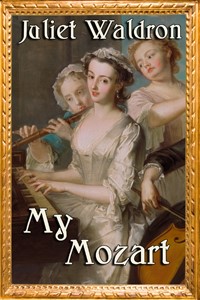I think I enjoyed writing my Mapleby Memories series more than any of my other books and, in part, this was because the research that was necessary to get the facts right sucked me in. For Book 1: Remembering Rose I had to discover what life was like in small town UK in the late 1800s and early 1900s. For Book 2: Loving Ellen I only had to go back a few years, whereas in Book 3: Many a Moon, I had to travel back to the 13th century. Although all of this took a lot of time, it left me with a history bug. One I've been indulging ever since.
Not by reading many history books though, but by reading historical fiction, because I know that good and committed writers get it right but in a much more digestible way. I don't always read the books either, sometimes I listen to them on Audible or via the BorrowBox App from my local library. This way I can offset boring household chores with something much more interesting, such as what living in Shanghai was like before the Japanese invaded China - it was known as the Paris of the East - or Romancing the Klondike by Books We Love's own Joan Donaldson-Yarmey - a tale about the men and women searching for gold in the Yukon. There are also TV series that open up the lives that people all around the world lived in the past. I know some of them manipulate the facts a bit to suit their story but a factual check on almost anything I've read, listened to, or watched, (something I often do) has shown that most of it is faithfully reported.
In this way I've learned about so many things that I knew very little about, or, I'm ashamed to say, in some cases wasn't even aware of. Amazing books by foreign writers I had previously never heard of have opened my eyes to the devastation caused by wars, such as the Turkish/Cypriot war and the Biafran bid for independence. I've learned about the glassmakers of Venice and how they had to adjust their trade to survive over the centuries, and I've read so much about how the ordinary people of Britain and Europe lived from the thirteenth century to the present day. One of my favourites, however, is the story of Ninevah, an ancient city in Mesopotamia, where its history is told through the movement and importance of water. The tale is so ingenious, while also being 99% accurate, that it stayed with me for days after I'd finished it, and, dare I say it, made me just a little jealous of the author for having such a skill.
Inevitably, the lives lived in the past, before modern comforts and modern medicine, were often hard and unforgiving. I've read or listened to tales of the displaced, the ignored, the forgotten, but then rejoiced that they have all been brought back to life by compassionate writers who want to tell their story. In the hands of the skilled writers the humanity of the characters comes through, as well as the healing strength of love.
I will continue to search out the history of the world because reading about it imparts the wisdom of hindsight, something the world urgently needs today.



.heic)








.jpg)















.jpg)































